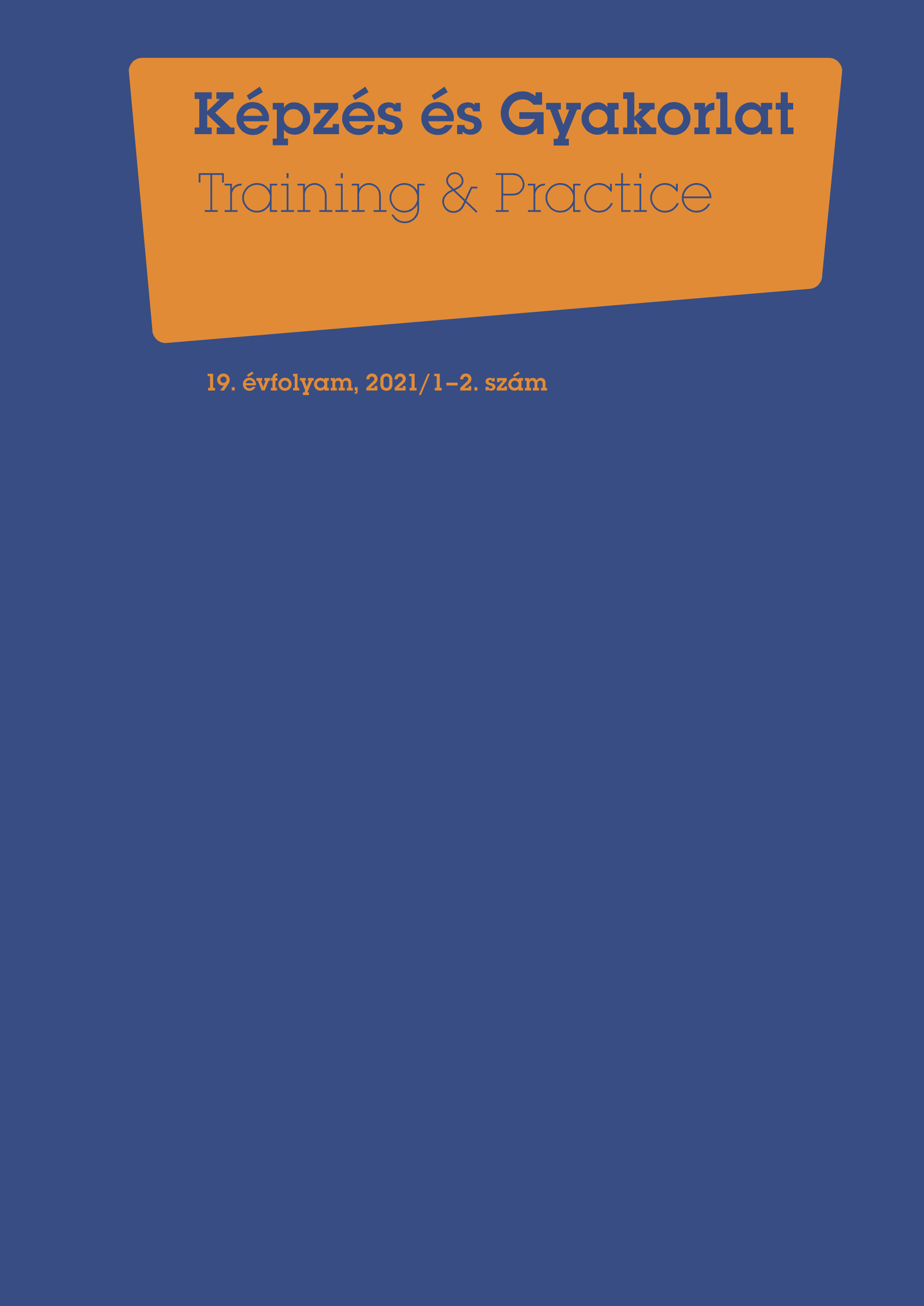Relation of career services and career uncertainty at secondary school
DOI:
https://doi.org/10.17165/TP.2021.1-2.16Abstract
Numerous researches highlighted (Mahasneh és Farajat, 2015, Török, 2016, Antonellou és Kounenou, 2016, Maree, 2019) that special career education and/or interventions make positive effect on students’ career decision and commitment. In our research we have explored the relationship among career education services and career uncertainty. We have found no correlations between the level of uncertainty and the number of services. Rather, there is a difference among grades and gender in terms of self-knowledge and only between gender in terms of anxiety and uncertainty factors as well. The highlighted phenomena are in significant relation with the factor of career information. In our interpretation it is important for students to get information about each profession in order to increase their self-knowledge and soothe the negative effect of uncertainty, but according to our sample school career education does not satisfy this need.
References
Antonellou, P., Kounenou, K. (2016). Evaluation of a Career Counselling Program Focused on Greek Elementary School Children's Career Interests. European Journal of Counselling Psychology, 5(1), pp. 4-17. DOI: https://doi.org/10.5964/ejcop.v5i1.83
Chartrand, J. M. et al. (1990). Development and validiation of the Career Factors Inventory. Journal of Counseling Psychology, Vol. 37., No. 4., pp. 491-501. DOI: https://doi.org/10.1037/0022-0167.37.4.491
Csányi V., Széll K. (2020). Középiskolás tanulók iskola- és pályaválasztási motivációi. Budapest, MKIK GVI Kutatási füzetek 1.
Di Fabio, A., Maree, J. G. (2013). Effectiveness of the career interest profile. Journal of Employment Counseling, 50(3), pp. 110-123. DOI: https://doi.org/10.1002/j.2161-1920.2013.00030.x
Hegyi-Halmos N. (2016). Az iskolai pályaorientáció szerepe és gyakorlata a hazai köznevelési intézményekben. Doktori disszertáció, Budapest, ELTE PPK
Lukács F. (2012). A pályaválasztás és identitásfejlődés összefüggései. A pályaválasztási bizonytalanság típusai az identitásállapotok tükrében, Doktori disszertáció, Budapest: Eötvös Loránd Tudományegyetem
Mahasneh, O. M., Farajat, A. M. (2015). The Effectiveness of a Training Program Based on Practice of Careers in Vocational Interests Development. Journal of Education and Practice, 6(26), pp. 101–108
Maree, J. G. (2019). Group Career Construction Counseling: A Mixed-Methods Intervention Study With High School Students. Career Development Quarterly, 67(1) pp. 47-61., DOI: https://doi.org/10.1002/cdq.12162
Olteanu L. L. (2020). A pályaválasztás neveléstudományi aspektusai. Kutatási beszámoló előadás. Eger: Eszterházy Károly Egyetem, 2020. május 27.
Osipow, S. H. (1999). Assessing Career Indecision. Journal of Vocational Behavior, 55(1), pp. 147-154. DOI: https://doi.org/10.1006/jvbe.1999.1704
Szilágyi K., Völgyesy P. (1996). Pályaorientáció. [Egyetemi jegyzet.] Gödöllő: GATE Tanárképző Intézet.
Török R. (2016). A pályadöntési én-hatékonyság sajátosságai és változási mintázatai sajátos nevelési igényű és tipikus fejlődésű középiskolások körében. Doktori disszertáció, Budapest: Eötvös Loránd Tudományegyetem
Downloads
Published
Issue
Section
License
Copyright (c) 2021 Tudlik Csilla

This work is licensed under a Creative Commons Attribution-NonCommercial-NoDerivatives 4.0 International License.












